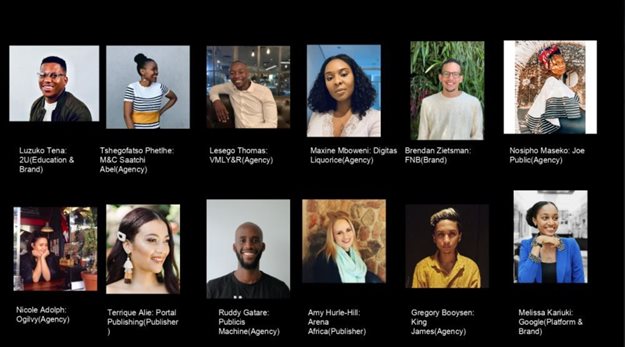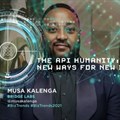#BizTrends2021: Youth in leadership - transformation requires genuine intent
Reflecting on South Africa's overall efforts towards transformation in the past, Tena drew parallels with George Orwell's Animal Farm, noting that the more things change, the more they stay the same. He lamented the fact that while the faces of industries have changed, behaviours of the past are still prevalent.
As part of the IAB's Youth Action Council, Tena leads a diverse team of young industry leaders, representing a range of companies and skills in the media and marketing space. Their role is to tackle this inertia in transformation by increasing under-30s engagement and participation in the industry.
"As a team, we all share a common goal of wanting to see the youth within the industry matter and be given platforms to learn, shine and grow - every month of the year, not just in June," Tena said.
He went on to share the council's three key focus areas in driving transformation:
1. Accountability
Without accountability, change is difficult to achieve, noted Tena, and part of the youth council's mandate is adding a layer of accountability within and for the IAB, as well as the various heads of member companies within the bureau.
"We also recognise as a group that as much as we're there to hold the top accountable, we're also going to be held accountable by our peers on how we use this platform," he said, which is why platforms of engagement are a priority for the council.
"We truly are interested in how our peers feel, but also in what they experience."

2. Ownership
Having its own table, while also having a seat at the table, is central to the council's approach - it operates as a standalone, but also collaborates with other councils and committees, explained Tena. And this puts to bed the delaying notion of the youth as the future of the industry, but rather present time leaders. This sort of ownership is vital to promoting diversity, inclusion and transformation, explained Tena.
3. Assurance
Tena referenced the #MustFall period in South Africa as a defining moment for millennials in the way the youth embraced leadership but also "perfectly balancing calling out together with calling in. And with that creating a space that allowed for people to not only introspect, but learn and unlearn while also just showing general empathy towards one another".
"As a council, this balance is very important to us too because as much as we want to make a statement, and we want to make a change, it's only possible through collaboration, understanding and mutual respect between us as the council, the group we represent, and also those who walked the road we are on for much longer," said Tena.
Embracing our differences
Stagnation on the transformation front for the last decade or so is probably as a result of second-guessing decisions and not embracing our differences, said Tena. It's also important to look beyond the traditional talent pools in order to build diversity, but even more so as the generational timeline moves resulting in talent found in non-traditional spaces.
Leaders are no longer just White and male, said Tena, they can also be found in the wide spectrum that makes up South African society. This is a reality that we have to accept, he said.
The notion of culture fit also does very little for diversity, noted Tena: "Perhaps we should look at team fit rather - who from this pool of talent can get the job done and help us get to where we want to be as a company."
Transforming with genuine intent
Transformation is a big task that requires a strong commitment in order to achieve true representation of South African society within the marketing and media industries, said Tena.
Doing this task well means being intentional in our approach and, more importantly, working collectively and not just relying on those that are under-represented to do all the work.

About Sindy Peters
Sindy Peters (@sindy_hullaba_lou) is a group editor at Bizcommunity.com on the Construction & Engineering, Energy & Mining, and Property portals. She can be reached at moc.ytinummoczib@ydnis.

















